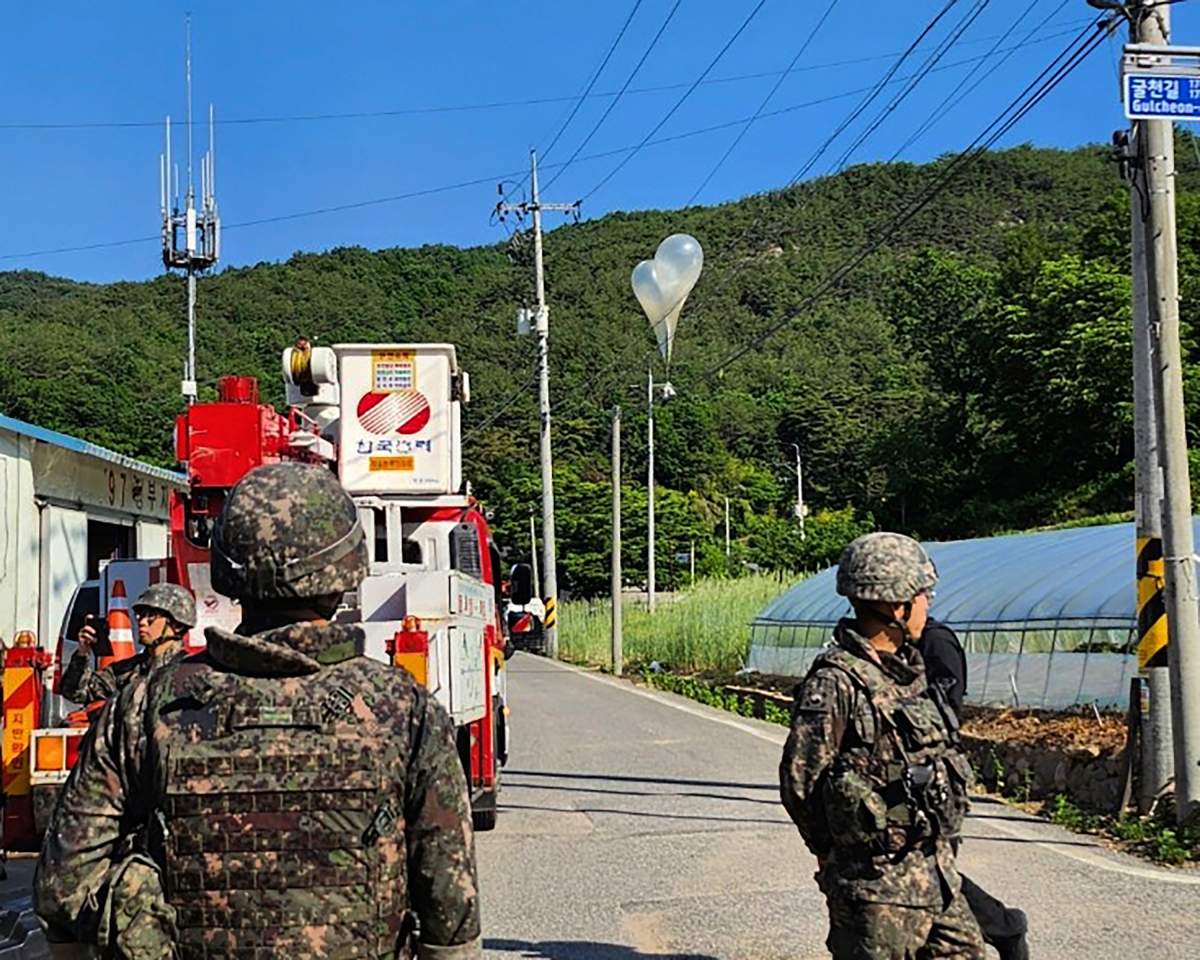North Korea announced it will stop sending balloons carrying trash and manure across the border, hours after South Korea warned its northern neighbour on Sunday that it would unleash “unbearable” retaliatory measures.

However, it seems that the end to the balloon campaign is still not been enough to cool tensions between the two nations, as South Korea announced Monday that it will suspend a 2018 military agreement signed with North Korea.
The bizarre balloon conflict between the two countries began last week, when hundreds of North Korean balloons rained trash and feces over South Korea, particularly in border areas.
Photos released by the military last week showed some still-intact white balloons with trash bags attached to them while others showed scattered pieces of plastic and paper on city streets. Apart from the trash, the South Korean military says manure and animal feces were also carried by some of the balloons.
Last Wednesday, the South Korean military reported that some 260 balloons had been found in various parts of the country. By Sunday, more than 700 balloons have been found.

Get daily National news
South Korea’s national security director Chang Ho-jin said Sunday that North Korea was attempting to provoke “public anxieties and chaos” in South Korea by sending the balloons, and he also accused the authoritarian state of jamming GPS navigation signals.
Chang promised that South Korea would respond to North Korea’s “absurd, irrational acts of provocation” with “unbearable” retaliatory measures.
Observers say South Korea will likely restart front-line loudspeaker broadcasts into North Korea that include criticism of its abysmal human rights situation, world news and K-pop songs. North Korea is extremely sensitive to such broadcasts because most of its 26 million people have no official access to foreign TV and radio.
Following Chang’s comments, the North Korean vice defense minister Kim Kang Il announced the balloon activities would cease. He had previously said that the campaign was a “tit-for-tat” move in retaliation for South Korean activists sending balloons across the border with leaflets criticizing North Korea’s human rights abuses.
“Tit-for-tat action will be also taken against frequent scattering of leaflets and other rubbish (by South Korea) near border areas,” Kim said May 26. “Mounds of wastepaper and filth will soon be scattered over the border areas and the interior of (South Korea) and it will directly experience how much effort is required to remove them.”
On Sunday night, Kim said that North Korea had proved its point to the South and would stop sending balloons.
“We made (South Korea) get enough experience of how much unpleasant they feel and how much effort is needed to remove the scattered wastepaper,” Kim said, warning that the balloon campaign would resume if South Korean leaflets were found in the North again.
But on Monday, South Korea doubled down on its promise to retaliate against the trash balloons by announcing plans to suspend a military agreement between the two countries that prevents South Korea from conducting military training near the border with North Korea.
The pact was signed in 2018 as the culmination of months of historic summit meetings between the two Koreas, led by South Korea’s former president Moon Jae-in.
Last year, North Korea announced it was no longer bound by the agreement and began deploying troops and weapons at guard posts near the border. By continuing to abide by the now-one-sided agreement, South Korea opens itself up to “considerable problems in our military’s readiness posture,” the country’s National Security Council said Monday.
The council will raise the plan to suspend the military agreement on Tuesday during a cabinet meeting.
— With files from the Associated Press and Reuters











Comments
Want to discuss? Please read our Commenting Policy first.